In 2010, the total number of individuals with dementia in Malta stood at about 5,000. By 2030 that figure will double to 10,000. The evolution of healthcare technology has bestowed a longer life upon the human race. But this extended lifespan comes at a price. The prevalence of neurodegenerative diseases normally associated with old age, such as the many forms of dementia, is on the rise. With no cure in sight, the future depends on the development of effective prevention and care methods. This is the mission of Dr Charles Scerri, Anthony Scerri, and their team as they join forces to battle dementia
It was on June 5th of 2011 that 80-year-old Briton Geoffrey Morgan went missing from Għajnsielem, Gozo. One minute he was sitting at home while his wife and daughter were preparing breakfast, the next he was gone—disappearing into thin air. An intense search by friends and family proved fruitless. The local police were called in. Feelings of both immense relief and worry consumed the family as Geoffrey was located on CCTV footage, wandering aimlessly down Gozitan streets, exhausted, disorientated, and obviously lost. Rescue dogs were dispatched immediately to track him down. But to no avail. Sadly, this story was not to have a happy ending. Geoffrey Morgan’s body was found months later in Qala. Geoffrey had Alzheimer’s, a form of dementia.
| Dementia: a quick overview |
The World Health Organisation (2012) defines dementia as ‘a syndrome due to illness of the brain, usually of a chronic or progressive nature, in which there is disturbance of multiple higher cortical functions, including memory, thinking, orientation, comprehension, calculation, learning capacity, language and judgement. When it comes to risks, increasing age remains the most important factor. 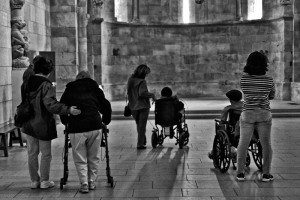 High blood pressure in middle-aged people also makes them more prone, as does high blood cholesterol levels, diabetes, obesity, and stroke. Some studies link depression and dementia even though the exact cause is unknown. Finally, repeated head trauma, as experienced in boxing or rugby, could trigger processes in the brain that result in chronic traumatic encephalopathy. There are also reversible forms of dementia. Vitamin B12 deficiencies for example can be treated to reverse the symptoms of dementia that it causes, as in the case of Hypothyroidism, Lyme disease, and neurosyphillis. The onset of dementia, usually common after the age of 65, can be delayed by engaging in mental, physical, and social activities. Additionally, a healthy and balanced diet low in saturated fat reduces heart disease and stroke, and consequently dementia. That being said, it is not impossible for dementia to affect younger people. But when this happens usually the patient would have inherited some form of the disease from relatives. The presence of frontotemporal lobar degeneration and Huntington’s disease could also drive development in younger people, as well as other neurodegenerative disorders such as Huntington’s disease, Parkinson’s disease, and amyotrophic lateral sclerosis (ALS). High blood pressure in middle-aged people also makes them more prone, as does high blood cholesterol levels, diabetes, obesity, and stroke. Some studies link depression and dementia even though the exact cause is unknown. Finally, repeated head trauma, as experienced in boxing or rugby, could trigger processes in the brain that result in chronic traumatic encephalopathy. There are also reversible forms of dementia. Vitamin B12 deficiencies for example can be treated to reverse the symptoms of dementia that it causes, as in the case of Hypothyroidism, Lyme disease, and neurosyphillis. The onset of dementia, usually common after the age of 65, can be delayed by engaging in mental, physical, and social activities. Additionally, a healthy and balanced diet low in saturated fat reduces heart disease and stroke, and consequently dementia. That being said, it is not impossible for dementia to affect younger people. But when this happens usually the patient would have inherited some form of the disease from relatives. The presence of frontotemporal lobar degeneration and Huntington’s disease could also drive development in younger people, as well as other neurodegenerative disorders such as Huntington’s disease, Parkinson’s disease, and amyotrophic lateral sclerosis (ALS). |
The tragedy that befell the Morgan family struck a chord with the Maltese population, bringing dementia and its related illnesses into the public eye like never before. Questions started being asked, and not just around what dementia entails but also on the bigger picture—what is being done to prevent such horrible events from happening in the future?
The reality is that we, the population as a whole, both globally and nationally, are aging fast. Funding care is becoming more and more difficult for families to afford and an increasingly heavy burden on the state. In Europe, an individual with dementia costs an average of €22,000 annually. In Malta, this figure translates to an overall yearly expenditure estimated to range between €63 million and €96 million. Plainly speaking, we are not prepared for the future that awaits us—financially, infra-structurally, or even socially. This is where Dr Charles Scerri and Ph.D. student Anthony Scerri come in.
“10% of professionals wrongly believe dementia is a natural follow up to old age”
Anthony Scerri
In the bid to help prepare Malta, Charles and Anthony’s goals are to build awareness, train professionals and, through research, paint a comprehensive picture of dementia with all its ramifications. This effort is not just happening in Malta but there are many researchers studying dementia worldwide. This is the only way to tackle the beast. But the road for Charles and Anthony has been far from easy.
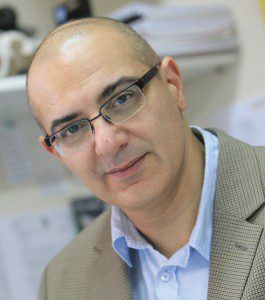
In 2004, while working at the University of Malta, Charles co-founded the Malta Dementia Society and continued his research into preventative measures in dementia. He wanted to give something back to society by starting a dialogue on the illness and, in so doing, help the people it affects. But instead of support he found widespread, unbridled apathy. ‘Dementia was not even considered a topic of discussion. It was a subject that was shunned, set aside and hidden, like many other mental illnesses,’ he points out. ‘Those affected behaved in too “strange” and “embarrassing” a way to be acknowledged, so people decided it was better to stay away rather than address the problem.’
Sadly, this state of affairs has not improved much. Because early manifestations of dementia tend to be small, they are often deemed insignificant, especially since they are related to old age. Sarah Morgan recounts how the earliest sign of her father’s Alzheimer’s was his forgetfulness. Geoffrey sometimes forgot what day it was. Then there were instances when he would walk into a room and then back out for no apparent reason. They would later realise that Geoffrey had planned on doing something but forgot by the time he got there.
“Dementia was not even considered a topic of discussion. It was a subject that was shunned, set aside and hidden, like many other mental illnesses”
Educating the public is essential. Charles and Anthony place it high on their list of priorities. But the highest priority is the ‘alarming’ lack of basic knowledge about dementia among professionals. ‘Published studies that have been carried out at the University of Malta are up to par’, says Charles. Erroneous practices see many people with some form of dementia not being referred to the right consultants. In defence of such actions, some practitioners will say that since the disease is incurable, then there is nothing more to be done. Shockingly, 10% of professionals wrongly believe dementia is a natural follow-up to old age. But this cannot be farther from the truth. Charles sets the record straight. ‘Yes, the chances of having dementia increase with age but it doesn’t have to happen. People over 90 have a 50% chance of getting it. The other 50% will not.’
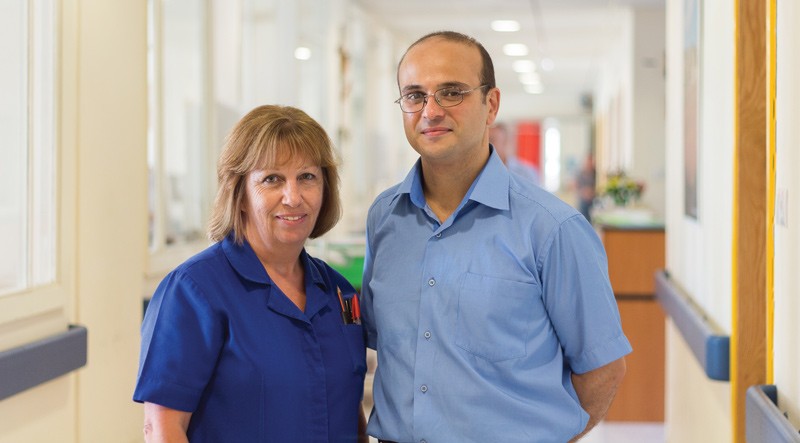
But not all is lost. Marrying practice and research, Anthony’s Ph.D. focuses on training professionals and improving care within the hospital setting. Working with charge nurse Anne Agius and her staff at Karin Grech Rehabilitation Hospital, Anthony is leaving the problem-based approach behind and putting people, patients, families, and carers, at the centre of it all. The one common denominator in dementia-related illnesses—a lack of cognitive function—is the most marked and most difficult to handle. While the progress of the disease is incremental, it slowly sees the sufferers become completely dependent on their carers. In Malta, with its ingrained traditional family system, most make the immediate decision to take on the responsibility of caring for their loved ones. The Morgan family too made this decision upon Geoffrey’s diagnosis. His daughter Sarah was with her parents on the day of diagnosis; ‘the psychiatrist confirmed his short term memory was failing and although I heard her say dementia, I immediately said, “It’s ok. We are a strong family. We can fight this.”
“In Europe, an individual with dementia costs an average of €22,000 annually. This means that In Malta, the overall yearly expenditure is estimated to range between
€63 million and €96 million”
Studies have proven that the best option for dementia patients is to keep living at home and be active within their communities. It saves them the distress brought about by the sudden change in environment. Unfortunately, this is not always possible and society is changing. Economic realities mean the ‘traditional’ family structure of a woman staying at home to take care of domestic duties is disappearing fast. The pressures on the family unit are now heavier than ever before. There have been numerous cases in which family members caring for relatives with dementia would suffer severe burnout, leaving them having to resort to care themselves. It is a vicious circle. Anne rightly points out that ‘In a way you hold your hands up and say: “what is the alternative?”’ Answering her own question, she says that having better community support is essential for people to cope. Even when under home care, dementia patients regularly need to be admitted to hospital. Anne described ‘acute events’, which range from a simple ear infection to a nasty accident at home. At this stage, the hospital’s carers need to swoop in and deal with the situation. Naturally, this does not only involve the patient but also the family which would be going through a crisis at the same time. This is no mean feat, especially if certain ‘difficult behaviours’, such as shouting and aggression, have already developed in the patient. This difficult behaviour can trigger bad reactions from the other dementia patients in the ward. In fact, Anne warns that just because someone has the academic qualification, it does not mean they are emotionally equipped to handle the challenges of working with people who have dementia. Sarah Morgan describes it as ‘a silent battle of the wills between the mind of the dementia sufferer and the carer who is just watching out for the patient.’
Trained professionals are key. “The constant adaptation of dementia care depending on the patient’s needs requires stamina and a great deal of understanding,” says Anthony. A patient-centred approach in its truest form must become standard practice. The one size fits all method most hospitals work with—breakfast at 9:00a.m., lunch at 12:00p.m., dinner at 5:00p.m.—has no place among those with dementia. This is going against all established organisational structures currently in place. Anthony knows that he will face resistance but insists that these changes are essential. 
A clear reflection of the effectiveness of Anthony’s theories is the progress already being made at the Karin Grech Hospital where they are put into practice. There has been an immensely positive response, not just from patients, but also from staff who were consistently consulted at every step, says Anne.
‘People felt they were involved and that their voice was being heard. As much as we always try to make the patient the main priority, it needs to be taken into account that caring for someone with dementia is a challenge in itself and we need to deal with both mental and emotional needs. It can be emotionally draining on the professional as well. The fact that someone is acknowledging this is very helpful.’ With much left to be done, everything is now coming together in Malta’s National Dementia Strategy written by Dr Charles Scerri who is the National Focal Point on Dementia since July, 2013.
| Treatment and Care |
| Symptoms of dementia vary, but for those looking out for early signs of dementia, according to the Alzheimer’s Association, at least two of the following mental functions need to be significantly impaired to be considered dementia: memory, communication and language, ability to focus and pay attention, reasoning and judgment, and visual perception. In practical terms, this means people with dementia could experience problems with short-term memory. They also have issues with keeping track of their money. Paying bills becomes difficult, as does planning and preparing meals, remembering appointments or travelling beyond their own neighbourhood. Many iterations of dementia develop in a progressive manner. This means symptoms start small and gradually get worse. Changes in thinking abilities and difficulty with memory should not be ignored. If you or a loved one are going through such changes, contact a doctor and determine the cause. It may be that a professional evaluation will point to a treatable cause. Should a form of dementia be in play, however, this means an early diagnosis will allow the person to develop a lifestyle and undertake treatments that can delay the disease or make it easier to cope with. The extra time also allows volunteering for clinical trials or studies. Clinical trials in the development of novel drug therapies for the most common forms of dementia have failed to date. The brain is a complex organ and identifying the cellular mechanisms governing neurodegenerative disorders is extremely difficult. The most promising targets to which most research is currently being directed are those involving the beta-amyloid peptide of which accumulation leads to the development of amyloid plaques and consequent brain cell death. Many of these therapies work by directing antibodies against the beta-amyloid thus removing plaques and halting disease progression. |
Malta’s National Dementia Strategy:A deeper look
Malta’s National Dementia Strategy aims to enhance the quality of life for individuals with dementia, their caregivers, and family members through measures in dementia management and care. To do so, the plan focuses on boosting awareness, improving diagnosis times and ensuring early intervention, development of a specialised workforce, improving treatment and care, promoting ethical approaches, and promoting and fostering research in the field. The strategy spans nine years from 2015 to 2023.Awareness of dementia will eliminate myths surrounding the disease and increase the chance of early diagnosis, hence limiting institutionalisation. This would be done with the help of media through ongoing information campaigns providing basic knowledge to the public. There also needs to be targeted information sessions as well as the strengthening the Dementia Helpline. The strategy also calls for training opportunities to be provided for professionals, including family doctors. This will boost referrals to specialists. Reducing waiting times for appointments is also needed, therefore, additional specialists will need to be brought on board. The strategy highlights the need for increased training of healthcare professionals. Few staff working with individuals with dementia have adequate specialist training. Towards this end the University of Malta is being urged to develop undergraduate and postgraduate level study units focusing on dementia.
The National Dementia Strategy is becoming more and more crucial as we try to take the bull by the horns and deal with dementia and its effects on the whole country. The plan puts forth a set of proposed measures across six categories; some have already been mentioned. It tackles increasing awareness, improving timely diagnosis and early intervention, development of a specialised workforce, improving treatment and care, promoting ethical approaches, and promoting and fostering further research in the field.
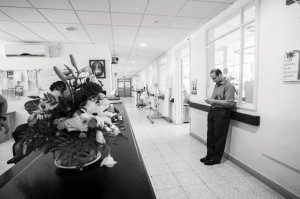 This strategy needs the support of policy makers for it to be implemented. While the strategy puts Malta at the forefront of all dialogue on dementia, being one of only 16 countries worldwide who have such a strategy, its successful implementation also means that there needs to be a huge attitude change on national level and an equally large amount of fiscal investment. It is certain that the spread of dementia will bring about a significant demand not only on the health and social care services but also on society as a whole. The impact of dementia cannot be ignored. The cost of doing so, of choosing to sweep dementia under the rug, would be devastating.
This strategy needs the support of policy makers for it to be implemented. While the strategy puts Malta at the forefront of all dialogue on dementia, being one of only 16 countries worldwide who have such a strategy, its successful implementation also means that there needs to be a huge attitude change on national level and an equally large amount of fiscal investment. It is certain that the spread of dementia will bring about a significant demand not only on the health and social care services but also on society as a whole. The impact of dementia cannot be ignored. The cost of doing so, of choosing to sweep dementia under the rug, would be devastating.
For those wondering about a cure, it will be a while yet before one is found. Unfortunately, that area of research has been painstakingly slow. Much like the different types of cancer, there are various iterations, each with different causes and pathologies. Progress has been set back also due to the number of years which have to pass before the symptoms begin to manifest themselves, at which point a lot of the damage has already been done.
That is why Charles and Anthony are in agreement that the focus here and now should be on quality of life. Care and communal support are critical, as is understanding. Dementia presents us with a challenge—to always keep sight of the person behind the disease. This is the battle we must always win, never allowing the disease to mar our view of the person. This is how we will win the war.

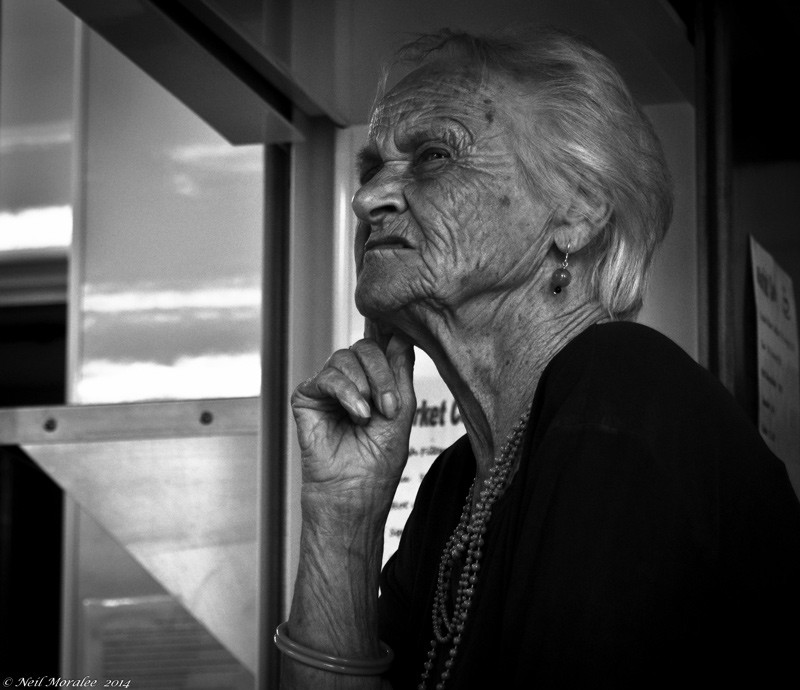

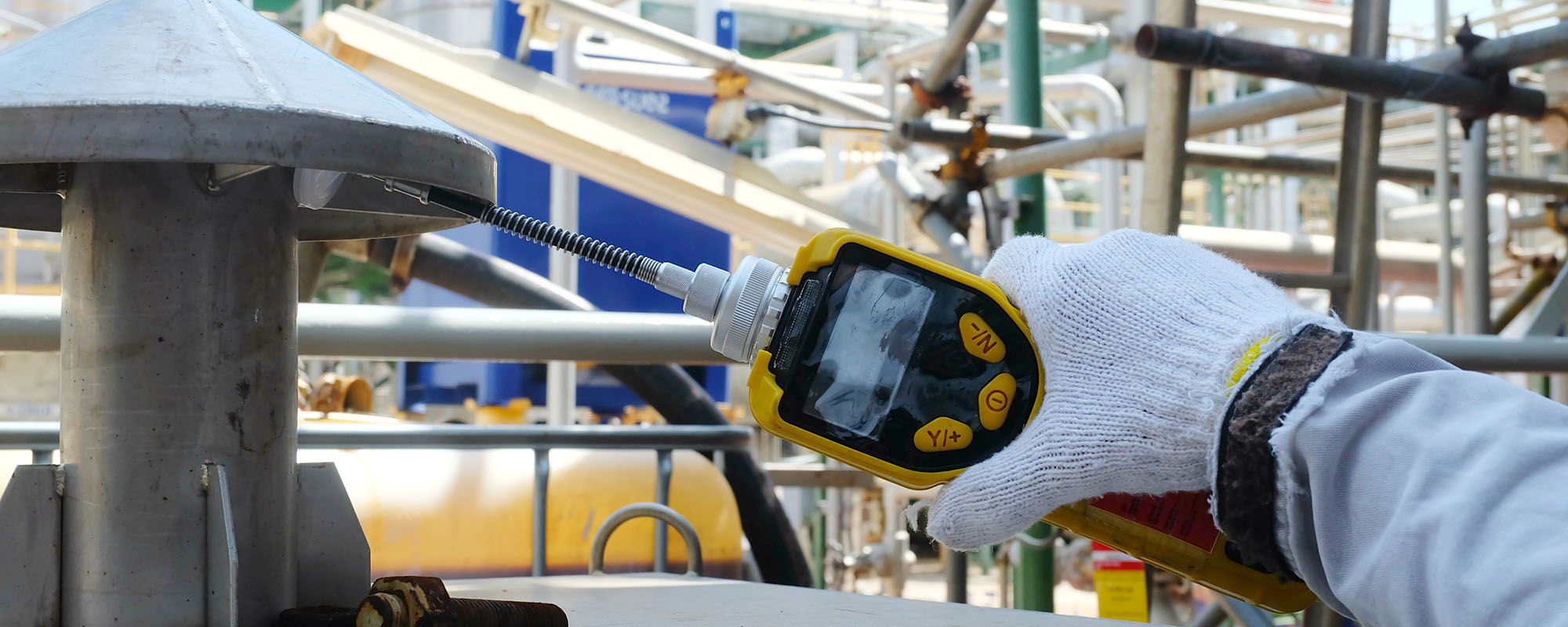


Comments are closed for this article!